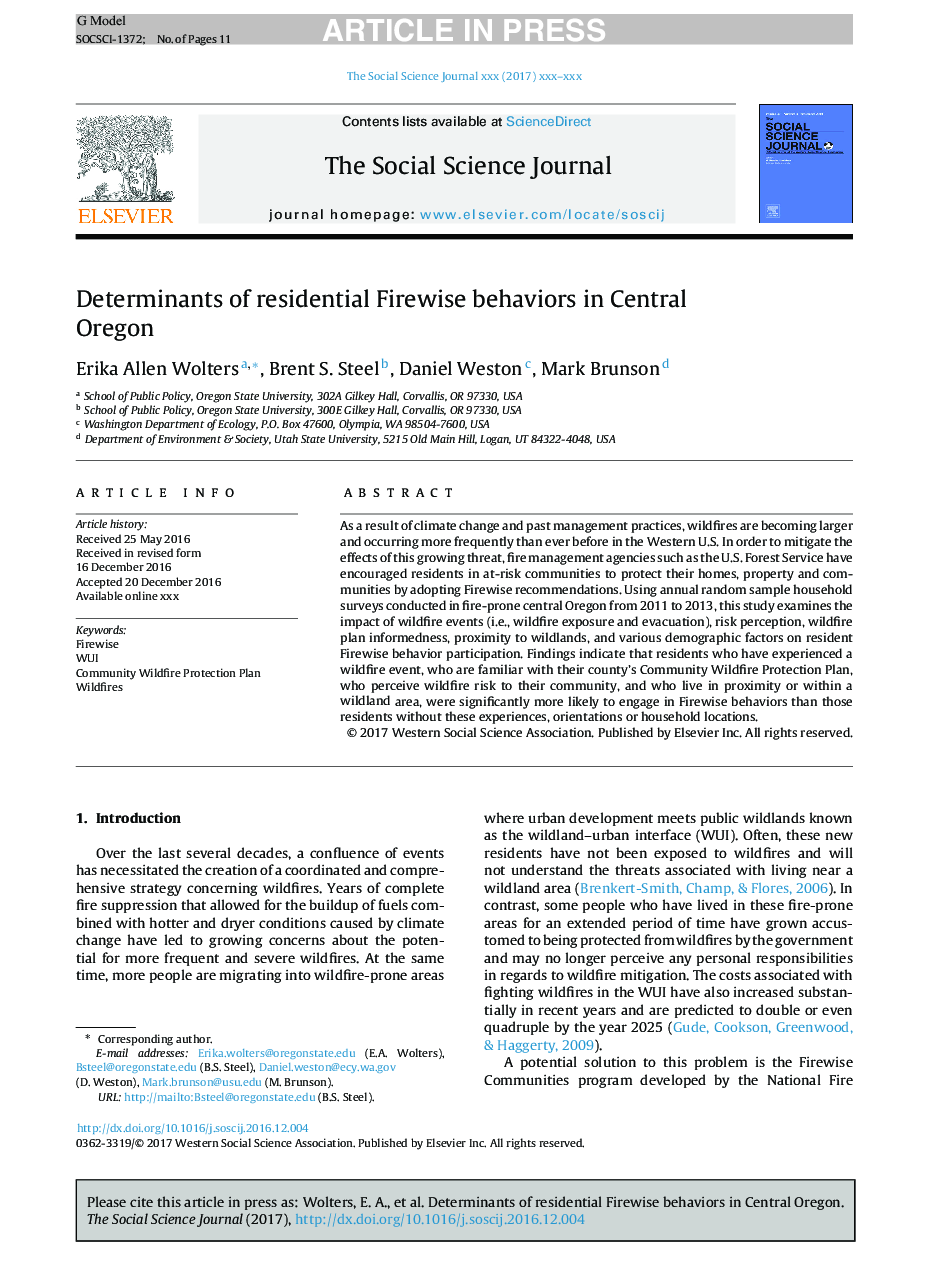| Article ID | Journal | Published Year | Pages | File Type |
|---|---|---|---|---|
| 4761942 | The Social Science Journal | 2017 | 11 Pages |
Abstract
As a result of climate change and past management practices, wildfires are becoming larger and occurring more frequently than ever before in the Western U.S. In order to mitigate the effects of this growing threat, fire management agencies such as the U.S. Forest Service have encouraged residents in at-risk communities to protect their homes, property and communities by adopting Firewise recommendations. Using annual random sample household surveys conducted in fire-prone central Oregon from 2011 to 2013, this study examines the impact of wildfire events (i.e., wildfire exposure and evacuation), risk perception, wildfire plan informedness, proximity to wildlands, and various demographic factors on resident Firewise behavior participation. Findings indicate that residents who have experienced a wildfire event, who are familiar with their county's Community Wildfire Protection Plan, who perceive wildfire risk to their community, and who live in proximity or within a wildland area, were significantly more likely to engage in Firewise behaviors than those residents without these experiences, orientations or household locations.
Related Topics
Social Sciences and Humanities
Psychology
Social Psychology
Authors
Erika Allen Wolters, Brent S. Steel, Daniel Weston, Mark Brunson,
